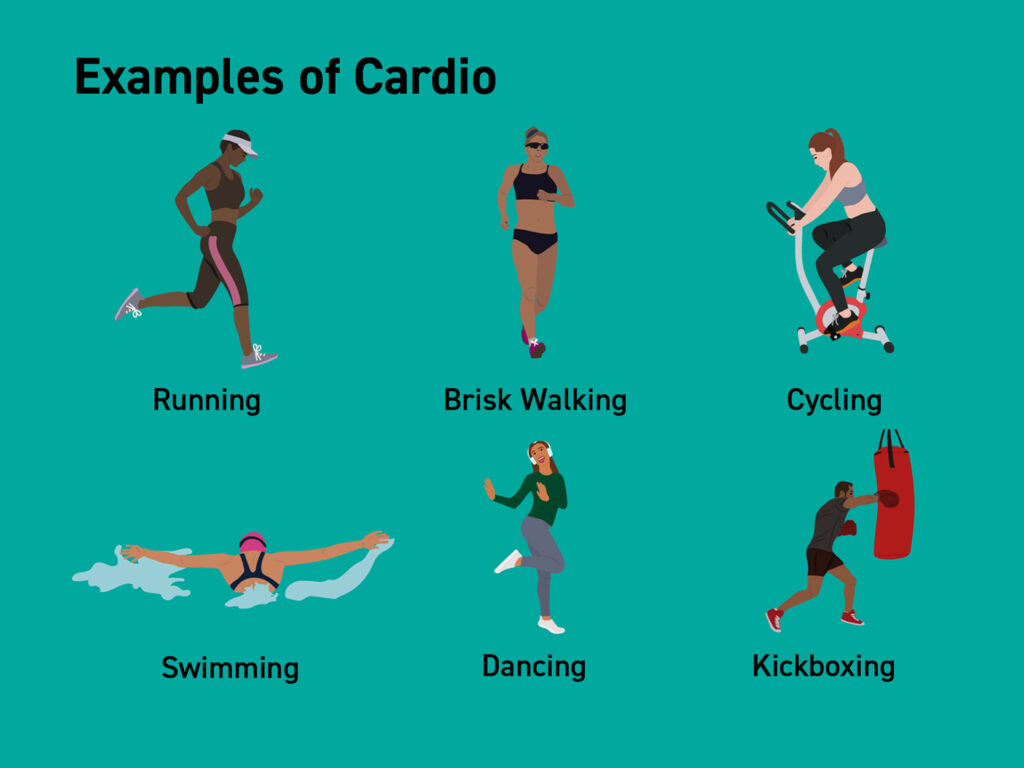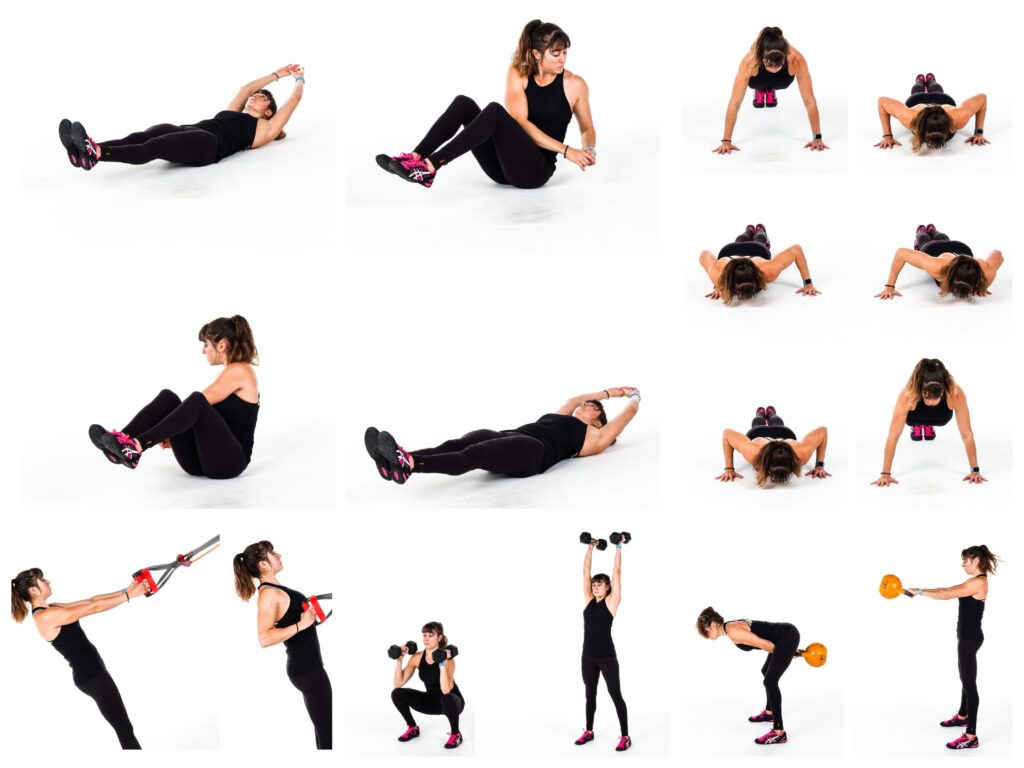
Cardiac exercise, also known as cardiovascular exercise or aerobic exercise, is any type of physical activity that increases the heart rate and helps improve the function of the cardiovascular system. This type of exercise can include activities like walking, jogging, cycling, swimming, and dancing, and it is an important part of a healthy lifestyle.
There are many benefits to engaging in cardiac exercise on a regular basis. Some of the most notable benefits include:
- Improves cardiovascular health: Cardio exercise is any type of physical activity that increases your heart rate and breathing rate. It can include activities such as running, cycling, swimming, and walking. Cardio exercise helps to strengthen the heart muscle and improve blood circulation, which can lower the risk of heart disease, high blood pressure, and stroke.
- Burns calories: Cardio exercise can help you burn calories and lose weight, especially if you do it regularly and combine it with a healthy diet. The number of calories burned during cardio exercise depends on factors such as the intensity of the activity, your weight, and the duration of the workout.
- Increases endurance: Cardio exercise can improve your endurance and stamina, making it easier for you to perform physical tasks and activities. As you become more fit through cardio exercise, your body becomes more efficient at using oxygen and energy, which allows you to do more without feeling as tired.
- Reduces stress: Cardio exercise can help reduce stress and improve your mood by releasing endorphins, which are chemicals in the brain that act as natural painkillers and mood elevators. Cardio exercise can also help to clear your mind and improve your overall sense of well-being.
- Improves brain function: Cardio exercise has been shown to improve brain function and cognitive performance, such as memory and attention. Studies have shown that regular cardio exercise can increase the production of brain cells and improve communication between brain cells, which can help to enhance mental function.
- Boosts immune system: Cardio exercise can improve the function of the immune system and reduce the risk of illness. Regular cardio exercise has been shown to increase the production of antibodies and white blood cells, which help to fight off infections and disease.
- Increases energy: Cardio exercise can increase energy levels by improving the delivery of oxygen and nutrients to the cells. As you become more fit through cardio exercise, your body becomes more efficient at using oxygen and energy, which can help to increase your overall energy levels.
- Improves sleep: Cardio exercise can help improve sleep quality and duration. Exercise can help to tire out the body and reduce stress and anxiety, which can make it easier to fall asleep and stay asleep.
- Increases flexibility: Cardio exercise can increase flexibility and mobility, especially if it involves movements that involve a range of motion. Cardio exercise can help to stretch and lengthen muscles, which can improve flexibility and reduce the risk of injury.
- Increases self-esteem: Cardio exercise can improve self-esteem and body image by helping you feel stronger and more confident. As you become more fit through cardio exercise, you may notice positive changes in your appearance and physical performance, which can boost your self-esteem and overall sense of well-being.
It’s important to note that while cardiac exercise is beneficial, it is also important to consult with a healthcare professional before starting a new exercise program. This is especially important for individuals who have a pre-existing medical condition or who are new to exercise.
In terms of how to get started with cardiac exercise, it’s important to find an activity that you enjoy and that is appropriate for your fitness level. It’s also a good idea to start slowly and gradually increase the intensity and duration of your workouts over time. For example, if you’re new to exercise, you might start with a brisk walk and gradually work up to jogging or running.
It’s also important to wear appropriate clothing and footwear for your chosen activity and to stay hydrated by drinking plenty of water. It’s also a good idea to warm up before exercising and cool down afterwards to help prevent injury.
In terms of how often to engage in cardiac exercise, the American Heart Association recommends at least 150 minutes of moderate-intensity exercise per week or 75 minutes of vigorous-intensity exercise per week. It’s also important to incorporate strength training and flexibility exercises into your fitness routine to help improve overall physical fitness.
Overall, cardiac exercise is an important part of a healthy lifestyle and can have numerous benefits for both physical and mental health. Whether you’re a seasoned athlete or just starting out, there is a cardiac exercise activity that is right for you.

what time we take a cardio exercise?
There is no “best” time to do cardiovascular exercise. The most important thing is to find a time that works for you and that you can stick to consistently. Some people prefer to do their cardio exercise first thing in the morning to get it out of the way, while others prefer to do it later in the day as a way to wind down.
There are some potential benefits to exercising at different times of the day, however. For example:
- Morning exercise: Some people find that they have more energy in the morning, which can make it a good time to do cardio. Exercise in the morning may also help to improve the quality of sleep.
- Midday exercise: Exercising during the day can help to boost energy levels and improve concentration and focus.
- Evening exercise: Exercise in the evening may help to reduce stress and promote relaxation, which can be helpful for sleep.
Ultimately, the best time to do cardio exercise is the time that works best for you and your schedule. It’s important to choose a time that you can stick to consistently, as regular exercise is key to seeing the benefits.

different cardiac exercises
how to improve cardiovascular health
There are several things you can do to improve your cardiovascular health:

- Engage in regular physical activity: Cardiovascular exercise, such as walking, jogging, cycling, and swimming, can help to improve the function of the heart and blood vessels. Aim for at least 150 minutes of moderate-intensity exercise per week or 75 minutes of vigorous-intensity exercise per week.
- Eat a healthy diet: A diet rich in fruits, vegetables, whole grains, and lean proteins can help to improve cardiovascular health. It’s also important to limit your intake of unhealthy fats, salt, and added sugars.
- Quit smoking: Smoking is a major risk factor for heart disease. If you smoke, quitting is one of the most important things you can do to improve your cardiovascular health.
- Reduce stress: Chronic stress can contribute to the development of heart disease. Finding healthy ways to manage stress, such as through exercise, meditation, or therapy, can help to improve cardiovascular health.
- Get enough sleep: Lack of sleep has been linked to an increased risk of heart disease. Aim for at least 7-9 hours of sleep per night.
- Monitor and manage medical conditions: If you have a medical condition such as high blood pressure or diabetes, it’s important to work with your healthcare team to monitor and manage these conditions to help improve your cardiovascular health.
- Maintain a healthy weight: Being overweight or obese can increase the risk of heart disease. Maintaining a healthy weight through diet and exercise can help to improve cardiovascular health.
By making lifestyle changes such as these, you can help to improve your cardiovascular health and reduce your risk of heart disease. It’s also important to talk to your healthcare provider about your specific risk factors and any steps you can take to improve your cardiovascular health.
which food good for cardiovascular
There are many types of foods that can be beneficial for cardiovascular health. Some examples include:
- Fruits and vegetables: These are rich in vitamins, minerals, and antioxidants, and they can help to reduce the risk of heart disease. Aim for at least 5 servings of fruits and vegetables per day.
- Whole grains: Whole grains, such as whole wheat, oats, and quinoa, are rich in fiber and other nutrients that can help to improve heart health.
- Lean proteins: Foods like chicken, turkey, fish, and tofu are good sources of lean protein, which can help to lower cholesterol and improve heart health.
- Nuts and seeds: These are a good source of healthy fats, which can help to lower cholesterol and improve heart health.
- Olive oil: This is a good source of healthy fats and has been shown to have a positive effect on heart health.
- Legumes: Beans, lentils, and other legumes are rich in fiber and other nutrients that can help to improve heart health.
- Dark chocolate: This is a good source of antioxidants and has been shown to have a positive effect on heart health when consumed in moderation.
It’s important to note that while these foods can be beneficial for heart health, they should be consumed as part of a balanced diet that also includes other types of healthy foods. It’s also important to limit your intake of unhealthy foods, such as processed meats, sugary drinks, and foods high in salt and added sugars, as these can increase the risk of heart disease.









